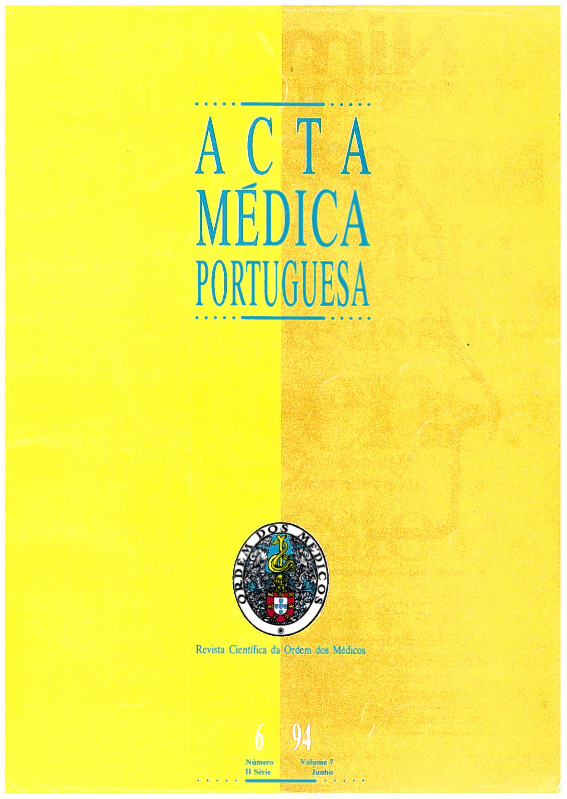Júlio Dantas e a arqueologia médica.
DOI:
https://doi.org/10.20344/amp.4129Resumo
Júlio Dantas (1876-1962), was a doctor of very restricted practice. Literature was his great passion, and projected him to a place in the Academy and to an interesting diplomatic career. Dantas, an archaizing and baroque writer who lived in the first times of the modernistic trends, became the object of a vivid controversy. We must, however, recognize he was the most successful of the popular playwrights in Portugal, having sold over two hundred thousand copies of his most known play. In Dantas', somewhat irregular work there are very beautiful pages of prose. The retrospective study of the diseases that afflicted the Portuguese kings is the subject of a collectanea of papers, published by Júlio Dantas in 1909, under the title Medical inquiries to the portuguese royal genealogies-Avis and Bragança. The book is within the limits of the so-called medical archaeology, a mix of history and speculation. Dantas presents a generic thesis of degeneration of the royal dynasties of Portugal, explained as natural consequence of heredity and consanguinity. Between the 13th. century and the beginning of the 1800s, monarchs and princes are implacably flagelatted, because of their physical diseases or moral faults. Isabel of Aragon, the saint-queen; prince Henry the Navigator; even the national hero, the constable Nun'Alvares, as many others, do not escape the severity of an analysis which, in most cases, is not medically accurate.Downloads
Downloads
Como Citar
Edição
Secção
Licença
Todos os artigos publicados na AMP são de acesso aberto e cumprem os requisitos das agências de financiamento ou instituições académicas. Relativamente à utilização por terceiros a AMP rege-se pelos termos da licença Creative Commons ‘Atribuição – Uso Não-Comercial – (CC-BY-NC)’.
É da responsabilidade do autor obter permissão para reproduzir figuras, tabelas, etc., de outras publicações. Após a aceitação de um artigo, os autores serão convidados a preencher uma “Declaração de Responsabilidade Autoral e Partilha de Direitos de Autor “(http://www.actamedicaportuguesa.com/info/AMP-NormasPublicacao.pdf) e a “Declaração de Potenciais Conflitos de Interesse” (http://www.icmje.org/conflicts-of-interest) do ICMJE. Será enviado um e-mail ao autor correspondente, confirmando a receção do manuscrito.
Após a publicação, os autores ficam autorizados a disponibilizar os seus artigos em repositórios das suas instituições de origem, desde que mencionem sempre onde foram publicados e de acordo com a licença Creative Commons









